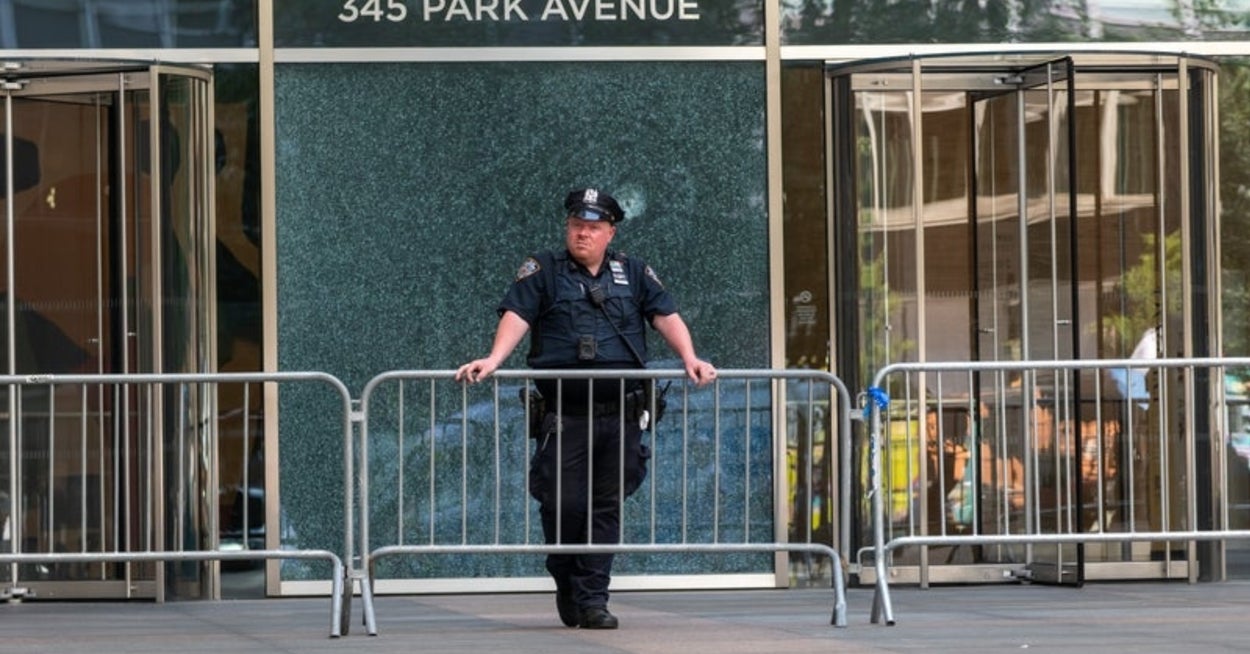“Should I be more worried?” I said to him, looking for some comfort.
“Maybe,” he replied. “Maybe not.” He graciously invited me to sit with him and his girlfriend, but I wanted another wall between the exterior windows and me. Instead, by 7:30 p.m., I had exiled myself to an interior office and was oscillating between my Twitter feed, CNN and a text chain with worried friends — one of whom actually worked in the building across the street but was (thankfully) working from home that day.
At the time, no one knew exactly what was going on. They didn’t know if the shooter was a lone gunman or if he had accomplices with him in the building. I watched footage online of people being handcuffed and escorted away from the scene directly in front of my building. Authorities didn’t know if this was an isolated incident or if there was more to expect in the area. On my floor, one person casually mentioned that they were concerned the shooter might have a bomb.
I knew that the people across the street from me were in exponentially greater danger than me. I knew that the terror they were experiencing was of the gravest kind. And at the same time, I had to remind myself that I was still in a very real zone of danger and needed to take it seriously. That I couldn’t diminish or ignore the emotional and physical ripple effects this event was having even though I, and those around me, weren’t at the center of them. Proximity to danger also breeds panic and leaves an impact even after you’re in the clear.
I sat in that interior office, listening nervously to the updates that came in over a loudspeaker every 20 minutes or so reminding us to stay put and stay away from the windows. By 8:30 p.m., we finally received a different message: We could leave the building through a side exit.
I’m embarrassed to say that I barely glanced at the other people on the floor or mumbled a goodbye before rushing to the elevator to head downstairs and out an exit I’d never seen before. As I hurriedly walked half a mile away from the crime scene before getting on the subway, I had nothing but time to think about what just happened.
Everyone has a plan, they say, until you get punched in the mouth. There’s sometimes a disconnect between how we think we’ll behave and what we actually do in unpredictable and unsettling moments. Are we kind? Are we bold? Are we selfless? Do we unravel? Do we excel? Do we falter?
No matter how you act in terrifying situations, you shouldn’t judge yourself too harshly. What I had to remind myself of, as a New Yorker, is that this city is completely unpredictable. Even the best-laid plans fall apart every day. I am grateful that I have the benefit of being able to plan another day.
Do you have a compelling personal story you’d like to see published on HuffPost? Find out what we’re looking for here and send us a pitch at pitch@huffpost.com.
This article originally appeared on HuffPost in August 2025.

